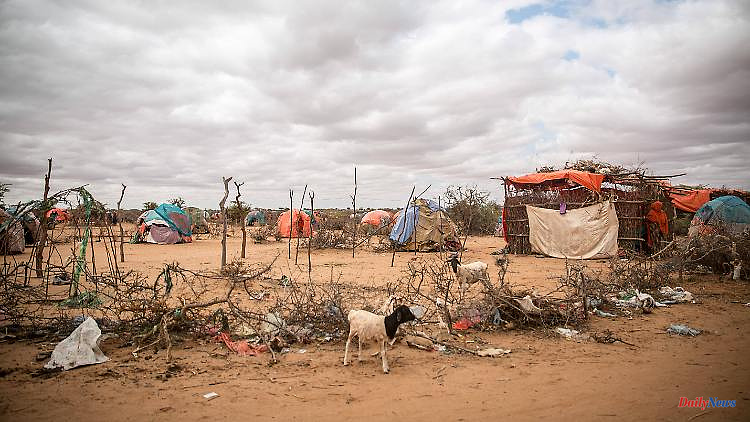Wars and droughts make food increasingly scarce. At the same time, groceries are becoming more and more expensive. Around the world, around 811 million people are currently suffering from hunger. Welthungerhilfe speaks of its annual report as a "wake-up call".
As a result of armed conflicts, climate change and development deficits, around 811 million people are currently starving worldwide. "For many years there have been continuous improvements in the fight against hunger, but since 2014 the trend has been reversed: multiple crises are causing the number of hungry people to continue to rise," says Welthungerhilfe's annual report presented in Berlin. Rising food prices exacerbated food insecurity.
As early as 2021, food prices around the world had risen by 28 percent in some cases. "The situation has worsened further due to the war in Ukraine. The situation in Yemen, Afghanistan and South Sudan is particularly dramatic. But also in Madagascar and the countries of East Africa, where massive droughts are showing the devastating effects of the climate crisis," it says further in the report. The aid organization speaks of a "wake-up call to finally step up efforts to combat climate change, which is leading to ever more serious humanitarian emergencies".
The organization is also observing an increasing number of countries that are no longer exporting food, making access to food even more difficult for billions of people. "More and more countries are saying: We're not letting anything out. That leads to shortages, that drives up prices, and that's really, really bad for the poorest people in the world because they can no longer afford food," said the Secretary General of the aid organization, Mathias Mogge, in the ZDF "Morgenmagazin". The world community must ensure that the markets remain open.
According to Mogge, Welthungerhilfe was able to spend a total of 260 million euros on projects last year - half of which went to humanitarian aid, the other half to long-term projects, for example to better prepare people for the "adversities" of climate change. One is very happy that the solidarity of the people in Germany with the problems in the global South throughout the pandemic period and also during the Ukraine war is "very, very strong", said Mogge.












